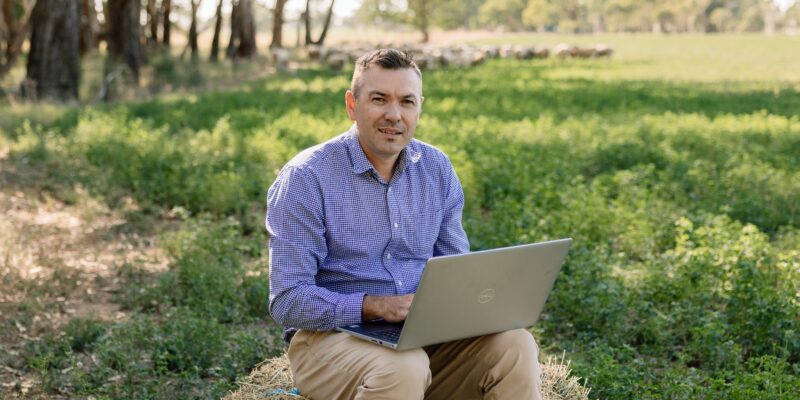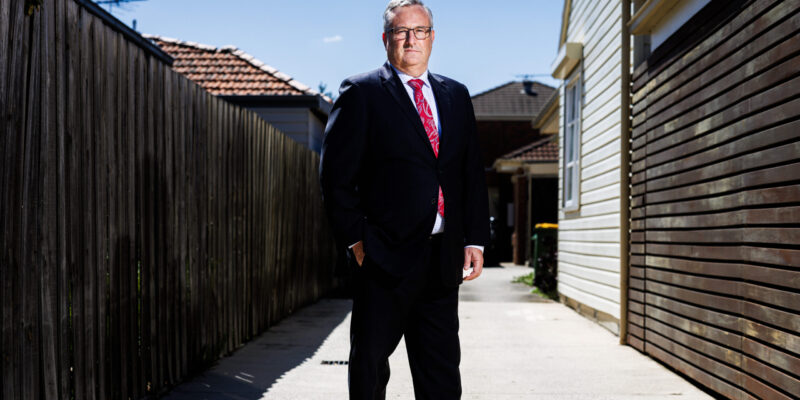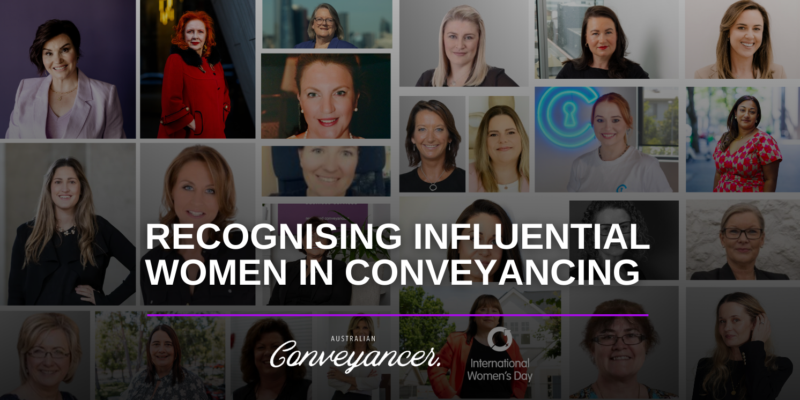Staying connected and staying on top
The conveyancing industry is in a continued state of change these days, say AIC Victoria vice-president Linda Cameron. But there is at least one constant amidst the evolution … the highly experienced practitioner’s passion for passing on her knowledge.

IN recent decades, Linda Cameron, Victorian vice-president of the Australian Institute of Conveyancers, has witnessed significant shifts in how conveyancers do their job.
Once upon a time, things rarely changed – a far cry from today when the profession has moved online, and things are constantly in flux, meaning conveyancers must continually update their skills to remain top of their game.
As well as her advocacy role, Linda is principal of Cameron Conveyancing, and has been a solo operator since 1980.
After a brief shift in career direction, she returned to conveyancing with ease, armed with the smarts on how to market herself, a deep network of industry contacts and vast professional expertise.
These days, Linda is deeply passionate about the education of younger conveyancers coming up the ranks. She is enthusiastic about supporting her younger colleagues, and ensuring the integrity of the profession is maintained.
Australian Conveyancer sat down with Linda to learn more about the highly respected leader and her vast experience, and why she believes in these times of constant change, AIC membership should be compulsory for conveyancers.
Australian Conveyancer: What daily challenges do you face in your practice?
Linda Cameron: It’s challenging liaising with new conveyancers coming into the industry who may not understand the process, and the legality and serious impact a bad decision can have.
Some people experience challenges with ethical considerations and understanding the proper way to manage a workload upon completing their diploma.
For an extreme example, some will tick the box “That I hold the paper title” to settle electronically. In fact, they do not. They’ve forgotten to get the paper title from their client, or their client has lost it.
But you can’t use a shortcut and be deceptive. If that happened to me, I’d just say to everybody that we can’t settle, and I’d jump in my car and go get the title. If it was truly lost, I’d apply for an urgent substitute.
I decided to join AIC Victoria, because I’d love to be able to help in some way.
Another challenge that’s come about with the rise of electronic conveyancing is the banking industry not checking client names against BSB and account numbers can lead to fraud.
AC: What about when it comes to technology advances and the impact on workflow?
LC: The biggest change definitely is the wonderful online settlements, I just think it’s absolutely fantastic.
I work from home and everything is online, so I’ve got plenty of time to see my grandkids and monitor the level of work I’ve got. The good part about the tech advances is we’re constantly educated now. PEXA and the ELNO assist us, and the AIC offers a lot of learning.
I don’t have many technology challenges, I have an excellent IT man but I stick to my comfort zone, which is knowing how to operate a file. Because I’ve been in the industry for so long, the challenge is how to do new things. I’m a very curious person and I’ll make sure I add to my knowledge.
AC: How do you ensure your practice is as profitable as it needs to be?
LC: Covid was extremely profitable but with every interest rate hike, things quietened down.
I was extremely quiet for a couple of months this year, so I wasn’t that profitable, but thanked god for the rest.
But for a younger conveyancer with a mortgage and other financial commitments, you’ve really got to keep on the ball to be profitable.
In my early years, I’d do projections and when things weren’t looking good, I’d market myself, knocking on doors and ringing contacts to bring the work in, but again, I really don’t have to do that now.
Having a decent website has been fantastic though, it’s one of the best thing I ever did.
AC: How do you manage work-life balance?
LC: I often work seven days a week because the work is there.
Although I work very hard, I really look after my energy levels.
But it’s not as if I work 9 to 5. If I’ve only got one settlement this afternoon and have signed off on it, I can take my laptop and go to see my grandkids.
So, I work my life around work. There are of course sometimes I can’t.
A lot of people may wake up at 3am and stare at the ceiling. Well, I don’t. I get up, make a cup of tea, go to the computer and work on contracts. Then it’s 6am and there’s no point going back to bed.
Work ethic is so important. You can’t let people down and you have to understand what’s achievable and what’s not. It comes back to client communication.
If there’s a very serious problem, I’ll face the email down on the desk until I’m in the right frame of mind. I’ll wait for the next day and make sure I’ve had a relaxing bath, listened to lovely meditation music and taken a deep breath – then I’ll deal with it. You’ve got to deal with problems, otherwise they’re sitting on your shoulder continually.
Even if you’ve stuffed up chronically, most times clients will understand and thank you for being honest.
AC: How do you cope with industry changes, and increasing obligations around data security and legal compliance?
LC: There’s a lot more compliance but it’s fine by me.
It means I spend more time on a file, but you need to be up to date. You just make sure you put the right things into place, so you comply.
I’m a bit of a realist – you’ve got to work with changes and not just complain about them.
Every now and again, something comes that’s frustrating, but I don’t sweat the small stuff.
As far as security breaches, if it happens on one of my files, it certainly affects me.
Years ago, it wasn’t a requirement to ask for a client’s ID.
Twenty years later, we must ensure our clients undertake their identity verification and ensure we’ve got all of the right pieces of paperwork. It doesn’t really bother me that much because I make the time. Now, a lot of conveyancers out there have got so much work and are so rushed. I empathise with them, because that’s when you make mistakes.
I became a member of AIC later on, because previously I relied on my industry contacts and solicitors for assistance, but my reasoning was wrong.
As I got older and many colleagues retired, I didn’t have as many people to refer to, so I joined the AIC. From that moment, the education and assistance has been absolutely fantastic. I really wish AICVIC Membership was compulsory for conveyancers.
AC: What do you think about the industry practice of larger conveyancing practices acquiring smaller ones?
LC: We’ve still got a lot of small operators out there, but it’s the way of the world.
If smaller practices are being bought up by the bigger firms, taking a client’s best interests at heart and doing a good job, it’s still creating employment.
It’s all about quality of work and it depends on how the bigger companies are going to handle the files.
I know one particular company that was bought by a bigger one and the clients were scrambling trying to find out from a previous secretary how they could get her to do the work because the firm was not answering calls. That’s a typical example of no service.
There’s the odd rogue conveyancing company that’s going out buying smaller ones, cutting corners and not looking out for clients’ best interests.
AC: What do you see as risks to industry profitability?
LC: It’s a risk to profitability if you’re taking on too many clients for a cut price.
Conveyancing is a specialised area, and you can’t just say, ‘I’m going to do the course, be a conveyancer, go out, cut the price and really minimise everything that must be done’. That’s going to have a long-term effect.
Profitability is very difficult. AIC VIC is always trying to persuade members and non-members to understand our value and charge accordingly.
People starting out need help to understand how to run a business and that’s where their ongoing education really needs to be looked at.
AC: What impact does the current property market and interest rate uncertainty have on the industry?
LC: I’m generally not a government basher, it’s a hard job. But keeping interest rates so low for so long was going to increase housing prices, there’s no argument there and many could see this happening.
As interest rates kept going down, you could see the size of the land reducing and increasing the value of the property. If there was an increase in the first homeowner’s grant, land prices would go up that much. It’s one of the saddest things because young kids can’t afford to buy a home in the suburbs.
Then the Reserve Bank comes along saying they need to increase interest rates because things have changed. That was just so unfair, there should have been more responsibility.
In Victoria, I’m getting a lot of vendors selling their investment properties because they’re being charged much higher land tax because of the government’s Covid clawback. Their council rates and owner’s corporation fees have increased. The industry for owners corporation managers is not properly regulated, leading to inexperienced individuals managing high rises and making costly mistakes.
AC: How do compliance obligations affect the industry?
LC: If you want to be in an industry, you have to comply.
At the end of the day, as long as you tick your boxes, the job’s done.
These days we have to do more for the ATO and State Revenue Office.
It comes back to having that further education. Without it, you’re not going to comply, because you don’t know.
That’s why we want our regulatory body to make further education mandatory, so compliance can be met.
AC: What do you think of using AI within the workflow?
LC: It’s early days but it’s fantastic. However, it’s really got to be used properly, like everything else.
While some may embrace AI and overlook important factors, those with experience and expertise will be better positioned to identify any inconsistencies.
You need people with knowledge to control it.





